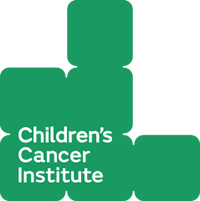Dr Emmy Dolman, Dr Emmy Fleuren
Applications accepted all year round
Competition Funded PhD Project (Students Worldwide)
About the Project
More than 140 children with cancer die in Australia each year due to the occurrence of resistance to traditional chemotherapy. To improve overall survival rates for high-risk paediatric cancer patients, treatment developments have been shifted to personalised approaches. To achieve this aim, the Children’s Cancer Institute initiated the Zero Childhood Cancer national personalised medicine trial (PRISM). Within this trial, tumour biopsies from children with high-risk cancer are collected for full molecular profiling to identify cancer driver events and the generation of patient-derived model systems to link these events to targeted therapies.
DNA damage signalling plays an important role in cancer as impaired DNA repair enables cancer cells to accumulate oncogenic DNA lesions. Molecular profiling of PRISM samples indeed showed frequent aberrations in DNA repair genes such as CHEK1 and -2, ATM, BRCA1, MSH6 and TP53 as well as the presence of mutational signatures indicative for BRCA-deficiency or impaired mismatch repair. The current study aims to unravel the DNA damage signalling landscape of paediatric cancers and to investigate strategies to exploit this knowledge to develop personalised therapies. This will for example be done by high-throughput in vitro testing of a DNA damage/repair drug library on unique patient-derived model systems. As treatment with single agents has been proven to be insufficient for complete cure in most cases, most promising drug candidates will be further studied in vitro and in vivo to identify combination strategies overcoming tumour resistance to single agents. Results are aimed at guiding future clinical trials for paediatric cancer treatment.
Funding Notes
To help us determine your suitability for postgraduate studies with us could you please send through a copy of your full academic transcript.
All students at the Institute must fulfil the requirements for enrolment at UNSW to undertake their PhD with us as well as obtain a scholarship that will cover both your living expenses and tuition fees. Scholarship and entry requirements will be provided on request.

 Continue with Facebook
Continue with Facebook

